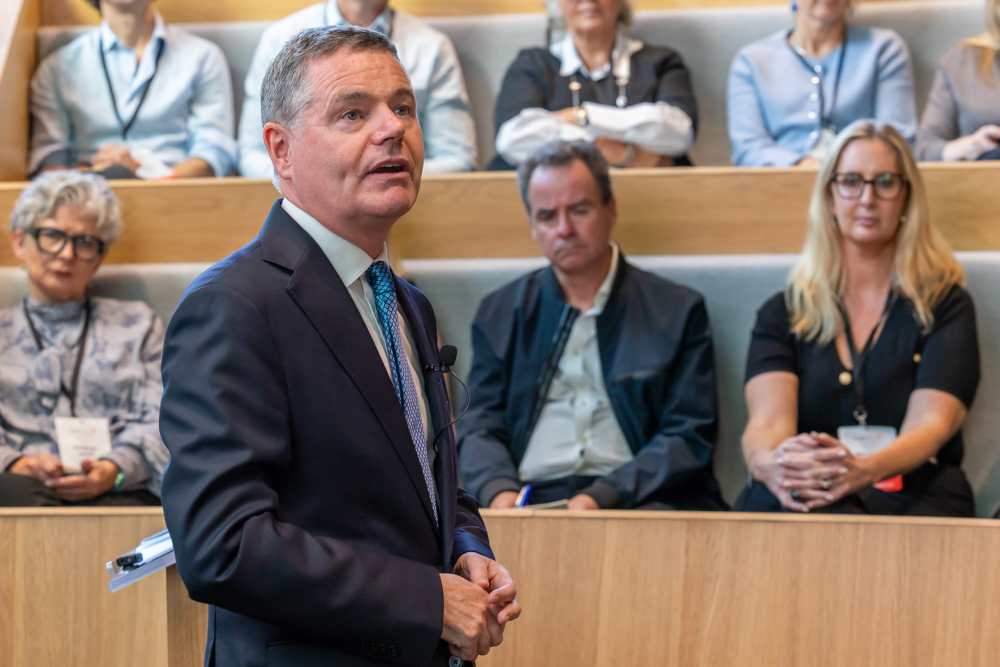Budget 2026 was far from a giveaway, writes Xeinadin’s Dave O’Brien, but it did contain some opportunities for SME businesses willing to take a proactive approach.
While many business owners will feel that once again larger industries, particularly the funds and investment sectors, received the lion’s share of attention, there are still meaningful ways SMEs can benefit and plan ahead.
Here are the five most practical actions Irish business owners can take following this year’s announcements.
“Practical action will help Irish businesses make the most of what’s available”
-
Assess cost pressures and cashflow
A 65-cent increase in the national minimum wage, without corresponding supports for employers, as well as the upcoming auto-enrolment will make this a challenging winter for many small businesses.
Action: Review your cost base and cashflow forecasts for Q4 and early 2026. Where possible, lock in supplier rates, review energy contracts, and explore short-term financing or Local Enterprise Office supports to maintain stability
-
Revisit your R&D claims – now worth 35%
The R&D tax credit will increase from 30% to 35%, with simpler qualifying rules for employee costs. If at least 95% of an employee’s time is spent on qualifying R&D work, 100% of their salary can now count as eligible expenditure.
For SMEs in manufacturing, technology, or product development, this could translate to real advantages.
Action: Review your current or planned R&D activities to ensure all qualifying expenditure is captured, even small pilot projects can now make a difference. Consider what R&D activities you are undertaking – potentially a tax credit is available that you may not be claiming.
-
Make use of KEEP to retain key people
The Key Employee Engagement Programme (KEEP) has been extended to 2028, KEEP is a tax efficient share option scheme available to SMEs. Subject to certain conditions, any gain realised by employees on the exercise of a KEEP option is exempt from Income Tax, USC and PRSI.
In an environment of rising wages and competition for talent, KEEP remains a powerful tool.Action: Consider how KEEP options could support your reward strategy for staff. If KEEP is not appropriate are there other share incentive schemes that might work better for your business.
-
Prepare for digital tax compliance
The rollout of e-invoicing under VAT in the Digital Age (ViDA) will begin in 2026, with business-to-business transactions moving toward full digital reporting. In preparation, it was confirmed that Revenue will begin a phased roll-out of electronic invoicing arrangements for business-to-business transactions. Further information is expected to issue but Ireland is lagging behind our European counterparts on this one.
Action: Start auditing your invoicing and accounting systems to ensure compatibility with e-invoicing. Those who act early will avoid disruption later.
-
Consider long-term planning incentives
While day-to-day pressures dominate, some longer-term measures can help SMEs strengthen their position:
- Entrepreneur Relief: lifetime limit increased from €1m to €1.5m, offering a 10% CGT rate on disposal of qualifying business assets.
- Accelerated Capital Allowances: continued for energy-efficient equipment, supporting sustainability investments.
- Living City Initiative: extended and broadened to newer properties
Action: Engage early with your tax advisor to plan succession, investment, and sustainability strategies around these reliefs.
Budget 2026 may not have delivered major new supports, but there are still levers that SMEs can pull to protect margins, reward staff, and strengthen their long-term financial position.
There remains a need for a more balanced policy approach, one that values local enterprise as much as international funds, but in the meantime, practical action will help Irish businesses make the most of what’s available.
-
Bank of Ireland is welcoming new customers every day – funding investments, working capital and expansions across multiple sectors. To learn more, click here
-
For support in challenging times, click here
-
Listen to the ThinkBusiness Podcast for business insights and inspiration. All episodes are here. You can also listen to the Podcast on:
-
Spotify
-
SoundCloud
-
Apple





